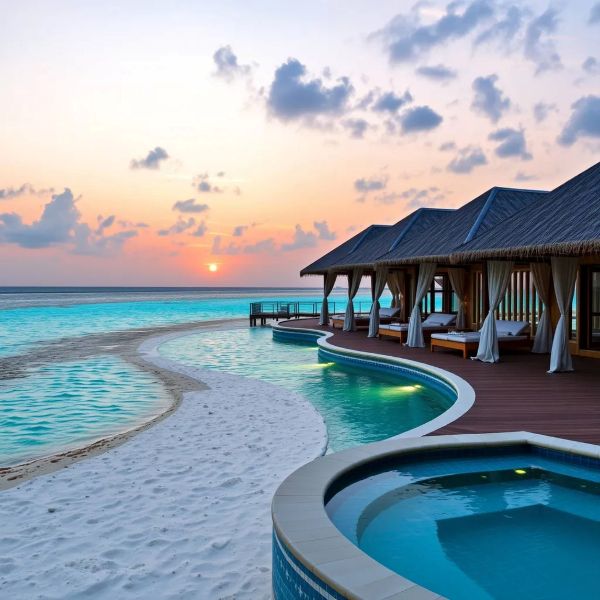Tuesday, May 13, 2025

Promoting Local Empowerment and Global Connectivity
It was suggested that Tabuk was not only selected for its geographic significance but also for its untapped tourism and economic potential. The Le Meridien hotel project, scheduled to open in Q1 2026, was viewed as a transformative initiative designed to boost local employment, enhance the region’s international visibility, and support community development. Those familiar with the initiative emphasized that the hotel was expected to offer promising job opportunities to the local population, while also drawing international travelers seeking both luxury and convenience in a dynamic environment.
Through this investment, stakeholders believed that the economic development of the Tabuk region would align closely with the ambitions of Saudi Vision 2030, providing new avenues for both residents and international visitors.
A Global Leap for Saudi Hospitality
Observers believed that this development in Tabuk would set a global benchmark in terms of hospitality standards. International travelers, including business professionals and tourists, were expected to gain access to cutting-edge technology, personalized luxury, and exceptional service once the property opened.
With the hotel located near Jordan and the Red Sea, it was indicated that its strategic location would appeal not only to regional visitors but also to those navigating global trade routes and cross-border logistics. The proximity to commercial hubs was expected to make it a prime destination for international summits, executive retreats, and high-profile events, further enhancing its international stature.
Hospitality That Mirrors Vision 2030
The project was said to reflect a collaborative vision to support the goals of Saudi Vision 2030, which aimed to diversify the Kingdom’s economy and establish its reputation as a premier destination for global tourism. Those involved in the project were said to be committed to aligning the hotel’s development with the broader ambitions of transforming Saudi Arabia’s hospitality sector.
The partnership between Sophos Hotels and Wataniah Business Group, as stated, was established with a shared intent of raising hospitality standards, thereby contributing to the Kingdom’s transformative journey in tourism and innovation.
An Exclusive Destination Rising in Tabuk
The property, as per project announcements, was expected to house 151 contemporary rooms and suites, each outfitted with the latest technology to offer maximum comfort and digital convenience. Of notable significance was the expansive presidential suite, which would occupy an exclusive floor and offer panoramic views of the city.
Guests were expected to enjoy culinary experiences curated by renowned chefs in specialty restaurants, along with indulgent services at a luxurious spa and wellness center, providing rejuvenating treatments in a tranquil setting. The blend of elegance and innovation was seen as setting a new benchmark in what was described as “redefining opulence” for Tabuk.
Strategic Importance and Construction Progress
It was observed that the hotel’s location near Tabuk’s commercial and logistical hub, bordering Jordan and the Red Sea, was of strategic importance. The proximity to major trading routes and regional gateways was considered a critical asset in appealing to business travelers, logistics professionals, and international tourists alike.
Construction had reportedly advanced smoothly, and all signs indicated that the hotel would open on schedule in Q1 2026. The official signing of the management agreement was marked at the Future Hospitality Summit (FHS) Riyadh 2025, further underlining the significance of this project in the broader hospitality calendar.
Key Global Travel Industry Takeaways
The development of Le Meridien in Tabuk was widely considered a symbol of Saudi Arabia’s evolving landscape in the luxury hospitality sector. The project’s impact was expected to ripple far beyond the region, with potential influence on global travel patterns and industry expectations.
Key Implications:
- Luxury travel demand in the Middle East projected to rise.
- Tabuk emerging as a dual tourism-business hub.
- Vision 2030 alignment influencing hotel development worldwide.
For global travelers, this project was likely to present a compelling new destination that combined modern luxury, strategic connectivity, and rich cultural appeal, ultimately influencing how future hospitality ventures would be planned across emerging economies.






